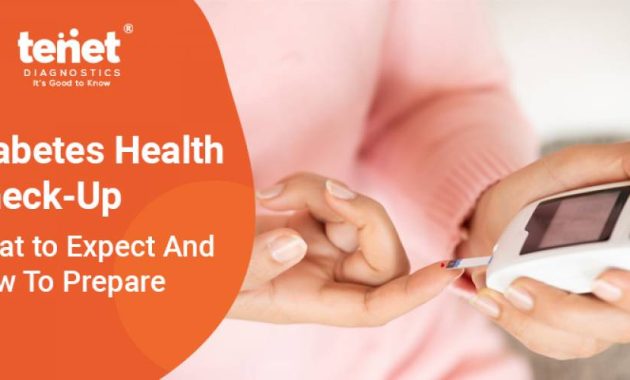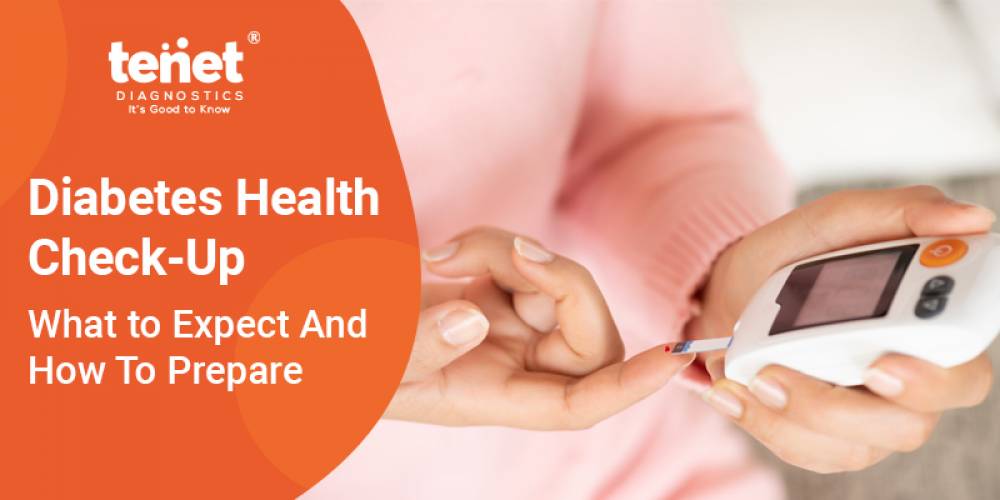
Navigating Diabetes: How to Prepare for Doctor Visits and Maximize Your Care
Living with diabetes requires proactive management and regular medical checkups. Doctor visits are crucial for monitoring your condition. They help prevent complications and optimize your overall health. This article provides practical guidance on how to prepare for doctor visits with diabetes. We will cover what to expect, and how to make the most of your appointments. This preparation ensures you receive the best possible care.
Understanding the Importance of Regular Doctor Visits
Regular doctor visits are not optional for people with diabetes. They are essential for effective disease management. These visits allow your healthcare team to assess your condition comprehensively. They can monitor your blood sugar levels, and evaluate your overall health. This includes checking for potential complications. Early detection and intervention are key. This is to prevent serious health problems. The frequency of visits varies. It depends on the type of diabetes and individual needs. However, most people with diabetes should see their doctor at least twice a year. Those with poorly controlled diabetes or other health issues may need more frequent visits.
Pre-Visit Preparations: A Checklist
Proper preparation is key to a productive doctor visit. This involves gathering necessary information and organizing your thoughts. Here’s a detailed checklist to guide you:
- Schedule Your Appointment Wisely: Choose a time that works best for you. Consider your energy levels and any potential conflicts.
- Keep a Detailed Blood Sugar Log: This is perhaps the most important preparation. Track your blood sugar levels regularly. Note the time of day, and any meals or medications taken. Include any unusual events that may have affected your readings. This log provides valuable insights into your diabetes control. It helps your doctor make informed decisions.
- Record Your Medications: Create a comprehensive list of all medications. Include the name, dosage, and frequency. This list should also include any over-the-counter drugs, vitamins, and supplements. Bring the list with you, or bring the actual medication bottles.
- Note Any Symptoms: Write down any new or worsening symptoms. Describe their frequency, and severity. Even seemingly minor symptoms can provide clues to your doctor.
- Prepare Questions: Write down a list of questions you have. Include questions about your medications, and blood sugar control. Ask about any concerns you have. This ensures you address all your needs during the visit.
- Bring Your Insurance Information: Have your insurance card and any required referral information readily available.
- Gather Other Relevant Information: If you’ve had recent lab tests or specialist visits, bring those results. Include any relevant medical records.
What to Expect During Your Doctor Visit
During your doctor visit, you will likely undergo several assessments. Understanding what to expect can help you feel more comfortable. It also allows you to participate more actively in your care.
- Review of Medical History: Your doctor will review your medical history. They will discuss your diabetes management plan. This includes your blood sugar log, medication list, and any symptoms.
- Physical Examination: A physical examination is standard. This may include checking your blood pressure, heart rate, and weight. Your doctor may also examine your feet for any signs of neuropathy.
- Blood Sugar Check: Your blood sugar levels may be checked during the visit. This provides an immediate snapshot of your current control.
- Lab Tests: You may need to undergo lab tests. These tests assess your A1C levels, kidney function, and cholesterol. They also screen for any diabetes-related complications.
- Medication Review: Your doctor will review your medications. They will assess their effectiveness, and adjust dosages as needed. They may also discuss potential side effects.
- Education and Counseling: Your doctor or a diabetes educator will provide education. This education covers various aspects of diabetes management. This may include diet, exercise, and medication adherence.
- Discussion of Goals: Your doctor will discuss your treatment goals. This includes blood sugar targets, and lifestyle modifications. You will work together to develop a personalized plan.
Maximizing Your Doctor Visit: Tips and Strategies
Making the most of your doctor visit requires active participation. It also requires effective communication. Here are some tips to help you maximize your appointments:
- Be Open and Honest: Share all relevant information with your doctor. This includes any challenges you are facing. Be honest about your lifestyle and medication adherence.
- Ask Questions: Don’t hesitate to ask questions. Clarify any concerns you have. Ensure you understand your treatment plan.
- Take Notes: Take notes during the visit. This helps you remember key information. It also helps you follow through with your doctor’s recommendations.
- Bring a Support Person: Consider bringing a family member or friend. They can provide emotional support. They can also help you remember important details.
- Follow Up on Recommendations: Adhere to your doctor’s recommendations. This includes taking medications, and making lifestyle changes. Schedule follow-up appointments as directed.
- Communicate Between Visits: Contact your doctor between visits. Do this if you have any new symptoms or concerns. Don’t hesitate to seek guidance.
Understanding Potential Complications and Early Detection
Diabetes can lead to several complications. Regular doctor visits play a crucial role in early detection. Early intervention can prevent or slow the progression of these issues. Potential complications include:
- Cardiovascular Disease: Diabetes increases the risk of heart disease. Your doctor will monitor your blood pressure, cholesterol levels, and heart health.
- Neuropathy: Nerve damage can occur. This often affects the feet. Your doctor will examine your feet. They will check for signs of neuropathy.
- Nephropathy: Kidney damage is a potential complication. Your doctor will monitor your kidney function. They will perform urine tests.
- Retinopathy: Diabetes can damage the blood vessels in your eyes. Regular eye exams are essential. This helps detect and treat retinopathy.
- Foot Problems: Diabetes can lead to foot ulcers. Your doctor will examine your feet. They will provide guidance on foot care.
Early detection and treatment of these complications are essential. This involves regular checkups. It also involves lifestyle modifications. This includes medication adherence. This helps improve your overall health. Regular doctor visits play a vital role in this process. This is why it is so important for those with diabetes to prepare for doctor visits.
The Role of Technology in Diabetes Management
Technology has revolutionized diabetes management. Various tools can assist you in preparing for doctor visits. These tools also help you manage your condition effectively.
- Continuous Glucose Monitors (CGMs): CGMs continuously track your blood sugar levels. They provide real-time data. This data allows for more informed decisions. Your doctor can analyze the data. This helps personalize your treatment plan.
- Blood Glucose Meters with Data Upload: Many blood glucose meters now upload data to your smartphone. This makes it easy to share your blood sugar logs with your doctor.
- Diabetes Apps: Numerous apps are available. These apps help you track your blood sugar, medications, and diet. They can also provide educational resources. They also offer personalized insights.
- Telemedicine: Telemedicine allows you to consult with your doctor remotely. This can be helpful for follow-up appointments. It is also helpful for addressing minor concerns. It provides convenience.
These technological advancements can enhance your diabetes management. They can improve your preparation for doctor visits. They can also improve your overall health outcomes. Discuss these tools with your doctor. Ask about how they can support your care.
Lifestyle Modifications and Diabetes Management
Lifestyle modifications are crucial for diabetes management. They complement medical treatments. They also improve your overall health. These modifications include:
- Healthy Diet: Follow a balanced diet. Focus on whole grains, fruits, and vegetables. Limit processed foods, sugary drinks, and saturated fats. Consult with a registered dietitian. They can help you create a personalized meal plan.
- Regular Exercise: Engage in regular physical activity. Aim for at least 150 minutes of moderate-intensity exercise per week. Exercise helps improve insulin sensitivity. It also helps manage blood sugar levels.
- Weight Management: Maintain a healthy weight. Weight loss can improve insulin sensitivity. It can also reduce the risk of complications.
- Stress Management: Manage stress through relaxation techniques. This includes meditation, yoga, or deep breathing exercises. Stress can affect blood sugar levels.
- Adequate Sleep: Get enough sleep. Aim for 7-8 hours of sleep per night. Sleep deprivation can affect blood sugar control.
These lifestyle modifications can significantly improve your diabetes control. They can also reduce your risk of complications. Discuss these changes with your doctor. Seek guidance from healthcare professionals.
Conclusion: Taking Control of Your Health
Preparing for doctor visits with diabetes is essential. It is an active step towards taking control of your health. By following the tips outlined in this article, you can maximize your appointments. This ensures you receive the best possible care. Remember to keep a detailed blood sugar log. Prepare a list of questions. Communicate openly with your doctor. Embrace lifestyle modifications. By doing so, you can effectively manage your diabetes. You can also live a long and healthy life. Regular doctor visits are a key part of this journey.
Understanding how to prepare for doctor visits is vital. This is especially true for people with diabetes. Prioritizing these visits, and preparing effectively, is an investment in your health. This ensures you receive the support you need to thrive. Remember, you are not alone. Your healthcare team is there to support you. Take an active role in your care. Work together to achieve your health goals.
[See also: Related Article Titles]

